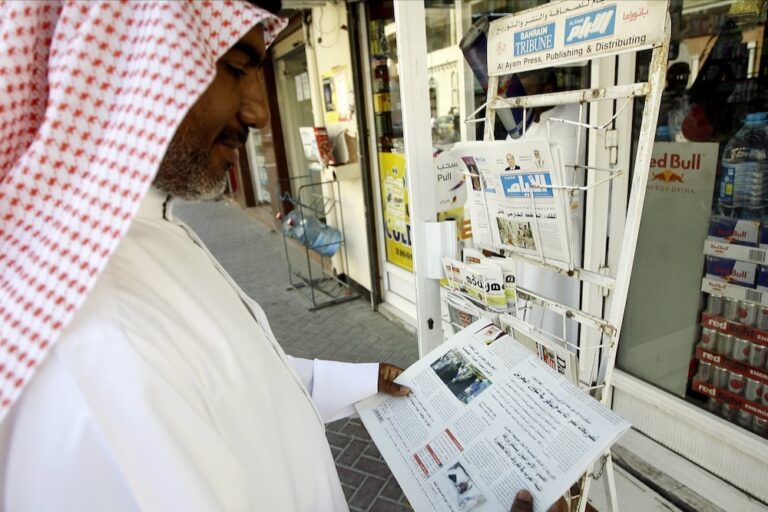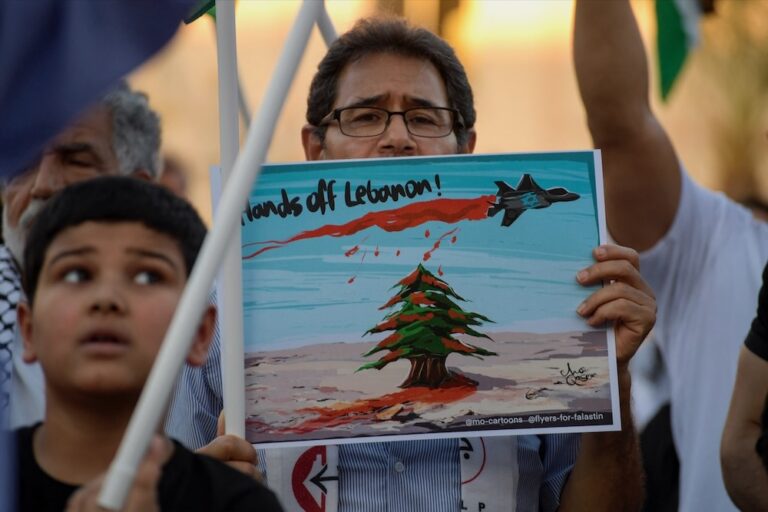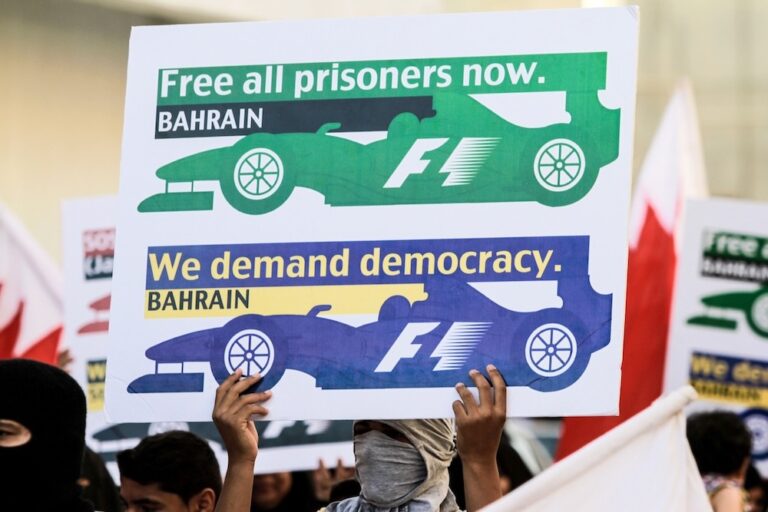A social media user has been sentenced to 6 months in jail for insulting Bahrain's King Hamad on Twitter. He is one of four Twitter users arrested in October 2012.
UPDATE: Abdullah Al-Hashemi, sentenced to 6 months in prison, was the first of the four Twitter users arrested to be charged. The three others have now also been identified. Salman Darwish was sentenced to one month in prison and Ali Mohamed Watheqi was sentenced to four, both on the charges of defaming the king via social media. On 12 November, Ali Alhayki expects to receive a verdict on the same charges. (BCHR, 8 November 2012)
(Index on Censorship/IFEX) – 1 November 2012 – Bahrain has a funny definition of free speech.
After jailing human rights activists and social media users critical of the government and even going as far as banning protests, the country’s government still insists that it protects its citizens’ right to freedom of expression.
In the most recent case, Bahraini officials reportedly sentenced a social media user to six months in jail for insulting the country’s King Hamad on Twitter. He was one of the four Twitter users arrested last month for “defaming public figures on social media” – which, according to the Ministry of Interior, is a no-no:
“The acting Director-General said that the freedom of expression was protected under the Bahraini constitution and the law. However, this freedom did not allow the defamation of others. He stressed the importance of using the social media responsibly and ethically.”
So expressing discontent with Bahrain’s government seems to fall outside the bounds of what is responsible and ethical, while the online war Bahrain wages against activists and protesters seems to fall within it.
Earlier this week, Bahrain banned all protests, after “repeated abuses” of free expression. The ban is supposedly being used to diffuse what has become an even more violent and desperate situation. In the past two months, security forces have killed two teenagers. After a roadside bomb took the life of a police officer during clashes in the village of Akar, seven were arrested in connection to the attack.
Rather than merely cracking down on dissent, Bahrain would do better to follow through on its promise to implement the 140 of the 176 recommendations that came from this year Universal Periodic Review (UPR) at the UN. Or even follow through on the seemingly long-forgotten recommendations from the Bahrain Independent Commission for Inquiry (BICI) last year.
But Bahrain’s desperation to silence its unrest – rather than address it – is only contributing to the country’s declining situation, and its disregard for reforms only spells out a bleak picture for its human rights situation. While insisting that it protects freedom of expression, Bahrain has actually declared war on it.


